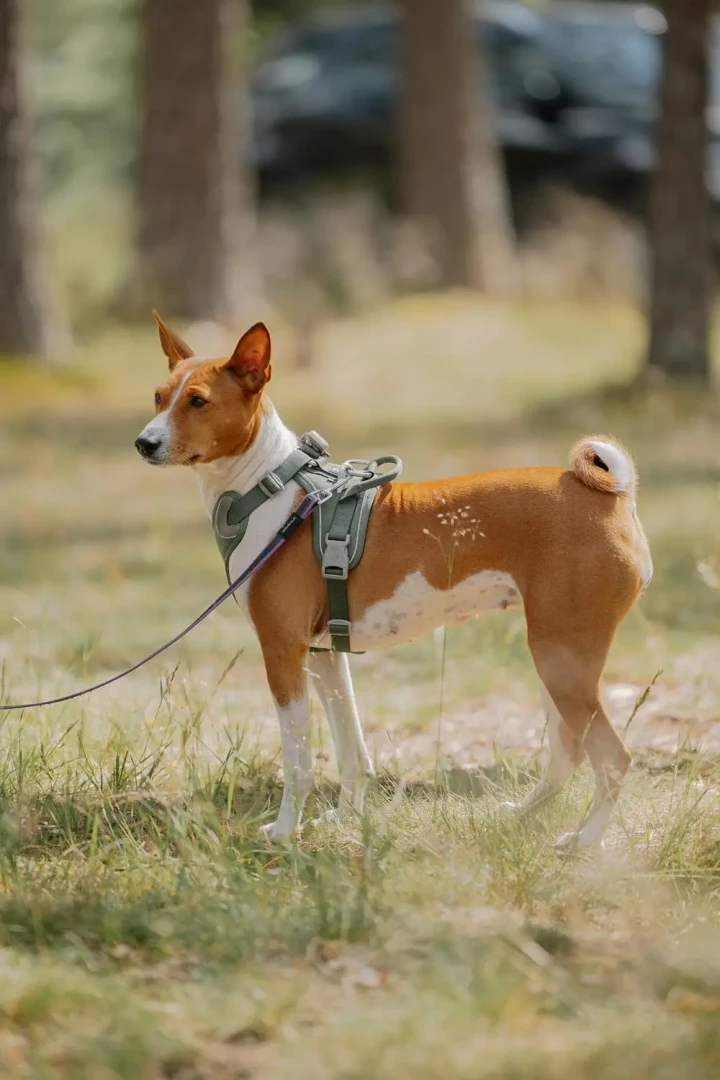
Basenji
About
The Basenji is a truly unique breed, distinguished by its independence, intelligence, and “barkless” nature. With origins in central Africa, this elegant dog combines ancient lineage with distinctive traits like its yodel-like vocalization and self-grooming habits. Known for their agility and strong hunting instincts, Basenjis thrive in environments that offer both mental and physical engagement. Their sleek, low-maintenance coat and alert, curious expression reflect their heritage as skilled hunters and loyal companions. While they are not without their challenges due to their independent streak, the Basenji remains a captivating breed with a rich history and distinctive personality.
 Breed Size
Breed Size
-
Weight (Male)
10-12 kg
-
Weight (Female)
9-11 kg
-
Height (Male)
40-44 sm
-
Height (Female)
40-44 sm
 Coat
Coat
-
Fur Type
Smooth
-
Color
One color
 Care
Care
-
Walk
>45 minutes/day
-
Breed group
Hound Group
-
Breed Size
S
-
Demeanor category
Reserved with Strangers
 Breed Traits
Breed Traits
-
Barking
-
Good with young children
-
Drooling
-
Energy level value
-
Grooming frequency value
-
Good with other dogs
-
Trainability
 Breeds Club Recognition
Breeds Club Recognition
-
Trainability Category
>Independent
-
Temperament
>Independent, Smart, Poised
Description
The Basenji is a small, elegant hunting dog, originally bred in Central Africa in ancient times for tracking and flushing game. This breed descends from ancient African pariah dogs, resulting in an intelligent, independent, and fast-moving companion.
-
Origin: Central Africa, developed for hunting and tracking.
-
Quiet and unique: Rarely barks but makes yodel-like sounds.
-
Intelligent and independent: Strong-willed but highly observant.
-
Loyal and affectionate: Forms deep bonds with its family.
-
Short, fine coat: Low maintenance and sheds minimally.
The Basenji is a curious and energetic companion, excelling in lure coursing, obedience, and companionship. With patient training and early socialization, they become well-mannered, affectionate pets best suited for experienced owners.
